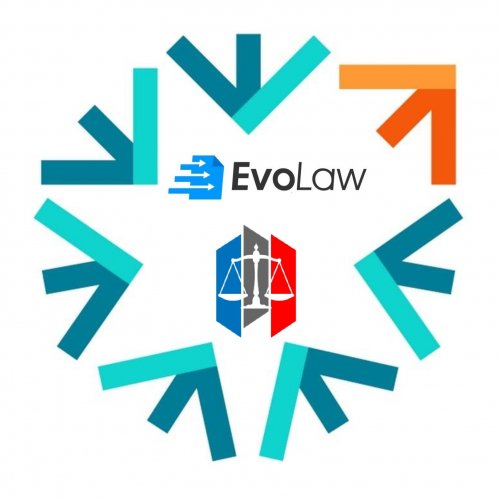Best Accounting & Auditing Lawyers in El Salvador
Share your needs with us, get contacted by law firms.
Free. Takes 2 min.
Or refine your search by selecting a city:
List of the best lawyers in El Salvador
About Accounting & Auditing Law in El Salvador
Accounting and auditing in El Salvador are integral parts of the financial management and legal compliance landscape for businesses. Regulations in this field are governed by a blend of national laws and international standards, aimed at ensuring accuracy, reliability, and transparency in financial reporting. These laws are crucial for nurturing investor confidence and maintaining the country's economic integrity. Key regulatory bodies include the Consejo de Vigilancia de la Profesión de Contaduría Pública y Auditoría (CVPCPA), which plays a significant role in oversight.
Why You May Need a Lawyer
Engaging with a lawyer specializing in accounting and auditing law might become necessary in several situations. Common scenarios include resolving disputes with tax authorities, addressing issues of non-compliance with financial regulations, handling audits or investigations by regulatory bodies, and navigating complex financial transactions or mergers. Legal counsel is indispensable in interpreting the intricate web of local laws, advising on best practice adherence, and offering legal representation during disputes.
Local Laws Overview
El Salvador's accounting and auditing laws converge around legal requirements for financial reporting, auditing standards, and the ethical conduct of professions. Primary legislative frameworks include the Código de Comercio, which mandates accounting practices, and various regulations by the CVPCPA, which set forth auditing standards and guidelines. Local laws align with International Financial Reporting Standards (IFRS) and International Standards on Auditing (ISA), ensuring compatibility with global practices. Compliance with tax codes and financial regulations is rigorously enforced, with penalties applied for infractions.
Frequently Asked Questions
What are the basic accounting requirements for businesses in El Salvador?
Businesses must maintain accurate financial records according to the Código de Comercio and comply with IFRS standards, ensuring transparency and accuracy in reporting.
How are auditors regulated in El Salvador?
Auditors are regulated by the CVPCPA, which sets the professional standards, ethical guidelines, and licensing requirements for the practice of public accounting and auditing.
Are international accounting standards applicable?
Yes, financial statements in El Salvador are generally prepared in accordance with International Financial Reporting Standards (IFRS).
What penalties exist for non-compliance with auditing standards?
Penalties include fines, suspension of business operations, or legal action depending on the severity and nature of the non-compliance.
How often should businesses undergo an audit?
Audit frequency can vary based on business size and sector regulations, but annual audits are typically required for medium-to-large enterprises.
What is the role of CVPCPA?
The CVPCPA oversees the accounting and auditing profession in El Salvador, ensuring compliance with established standards and ethical practices.
Can foreign businesses use international accounting firms?
Yes, international accounting firms can operate in El Salvador, but they must comply with local regulations and standards.
How can companies ensure compliance with local accounting laws?
Businesses should engage with knowledgeable accountants and legal advisors, perform regular audits, and stay updated on regulatory changes.
What are some challenges in the auditing process?
Challenges include complex regulatory environments, keeping up with international standards, and ensuring complete and accurate financial disclosures.
How do changes in tax laws affect accounting practices?
Changes in tax laws can impact financial reporting requirements, necessitate updates to accounting practices, and affect overall business tax liability.
Additional Resources
For further information or assistance, consider reaching out to the following resources: - Consejo de Vigilancia de la Profesión de Contaduría Pública y Auditoría (CVPCPA) - Ministerio de Hacienda (Ministry of Finance) - Local branches of international accounting firms - Business chambers and professional associations in El Salvador.
Next Steps
If you need legal assistance in the field of accounting and auditing, the first step is to consult with a lawyer specializing in corporate or financial law. Consider reaching out to local law firms with expertise in this area, or utilizing services offered by professional accounting bodies or business associations. Having a clear understanding of your specific legal needs will also help in selecting the right legal advisor to guide you through the complexities of accounting and auditing laws in El Salvador.
Lawzana helps you find the best lawyers and law firms in El Salvador through a curated and pre-screened list of qualified legal professionals. Our platform offers rankings and detailed profiles of attorneys and law firms, allowing you to compare based on practice areas, including Accounting & Auditing, experience, and client feedback.
Each profile includes a description of the firm's areas of practice, client reviews, team members and partners, year of establishment, spoken languages, office locations, contact information, social media presence, and any published articles or resources. Most firms on our platform speak English and are experienced in both local and international legal matters.
Get a quote from top-rated law firms in El Salvador — quickly, securely, and without unnecessary hassle.
Disclaimer:
The information provided on this page is for general informational purposes only and does not constitute legal advice. While we strive to ensure the accuracy and relevance of the content, legal information may change over time, and interpretations of the law can vary. You should always consult with a qualified legal professional for advice specific to your situation.
We disclaim all liability for actions taken or not taken based on the content of this page. If you believe any information is incorrect or outdated, please contact us, and we will review and update it where appropriate.
Browse accounting & auditing law firms by city in El Salvador
Refine your search by selecting a city.








